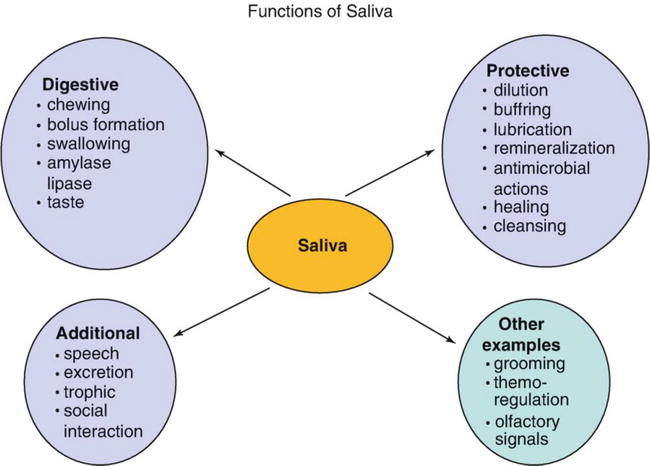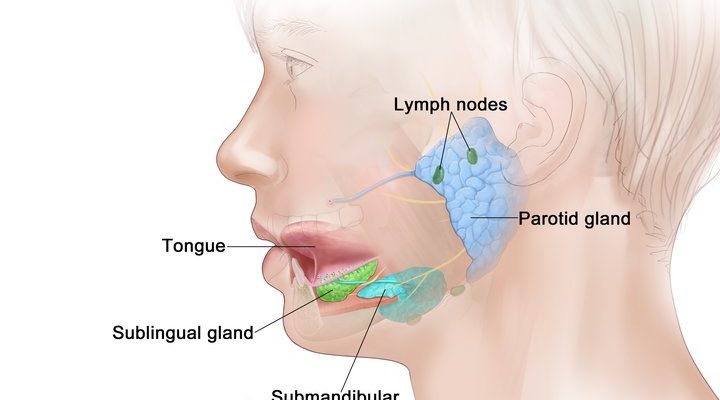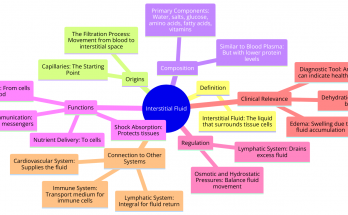Table of Contents
What is the role of saliva in the digestion of food?
Saliva plays a crucial role in the digestion of food by helping to break down complex carbohydrates and lubricate food to make it easier to swallow. It helps lubricate, break down and bind food so that it can be easily swallowed and digested. Its numerous enzymes and antibacterial properties also contribute to oral hygiene and disease prevention.
The salivary glands that produce saliva are located in different parts of the mouth and throat.
What are Salivary Glands?
Salivary glands are a series of organs located in front of the ears, under the chin in the floor of the mouth and throughout the palate, mouth and throat. There are three main types of salivary glands- the parotid glands, the submandibular glands and the sublingual glands.
- Parotid Glands – These glands are located just in front of and below each ear and produce a watery saliva that is rich in enzymes.
- Submandibular Glands – These glands are located on the inside of the lower jaw on each side and produce a thicker saliva that contains more mucus and enzymes.
- Sublingual Glands – Located under the tongue, they produce a thin, watery saliva that contains mainly mucus.
The Role of Saliva in the Digestion of Food

Saliva performs several important functions in the digestion of food, including –
- Lubrication and binding- Saliva moistens food and helps bind it into a cohesive mass called a bolus, making it easier to chew and swallow.
- Bolus Formation- Chewing and mixing food with saliva initiates the process of mechanical digestion, breaking food down into smaller particles that can be easily digested.
- Oral Hygiene- Saliva constantly rinses away food debris and bacteria, helping to maintain oral hygiene and prevent tooth decay and gum disease.
- Enzymes- Saliva contains enzymes, such as Amylase (ptyalin), which break down complex carbohydrates like starch into simpler sugars that can be absorbed and utilised by the body.
- Antibacterial Properties- Saliva also contains substances such as lysozyme that help kill bacteria and prevent the growth of microbial populations in the mouth.
Without enough saliva, we can have difficulty chewing and swallowing, which can lead to malnutrition and other health problems.
Frequently Asked Questions About the Role of Saliva in Digestion
What are the three types of salivary glands and what do they produce?
Answer – The three types of salivary glands are the parotid glands, submandibular glands and the sublingual glands. They produce different types of saliva with different levels of enzymes and mucus.
How does saliva help with oral hygiene?
Answer – Saliva constantly rinses away food debris and bacteria in the mouth, helping to prevent tooth decay and gum disease.
What is the function of amylase in saliva?
Answer – Amylase is an enzyme in saliva that breaks down complex carbohydrates such as starch into simpler sugars that can be absorbed and utilised by the body.
What is the importance of saliva in digestion?
Answer – Saliva plays a crucial role in digestion by lubricating and binding food, breaking down complex carbohydrates and initiating the process of mechanical digestion.
What are the consequences of not having enough saliva?
Answer – When we do not have enough saliva, we can have difficulty chewing and swallowing, which can lead to malnutrition and other health problems.
Also Check – 9 Important Functions of Salivary Glands
Also Check – Nutrition in Human Beings
Also Check – Explain the Role of Mouth in Digestion of Food
Also Check – What is the function of digestive enzymes
Also Check – Digestive Glands Class 10- Definition , Types and Functions


4 Comments on “What is the role of Saliva in the Digestion of Food?”